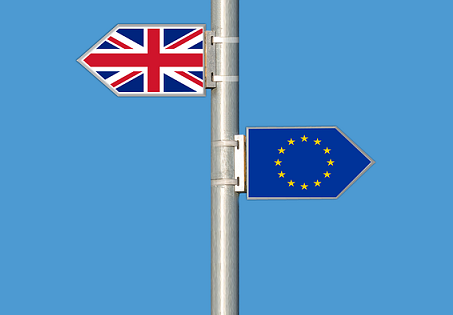

With much of what’s going to happen beyond March 2019 still up in the air, businesses want nothing more – aside from certainty at this point – than to mitigate the impact of the UK’s imminent departure from the European Union. And as pointed out numerous times, the repercussions for the insurance sector could be grave.
“The insurance industry provides a good illustration of why remaining in the single market makes most sense,” said First Minister of Scotland Nicola Sturgeon MSP at yesterday’s annual conference of the Association of British Insurers (ABI). “Remaining in the European Economic Area would, for example, enable financial passporting to continue. That is by far the easiest way of ensuring that UK companies can continue to sell insurance across the EU without having to consider setting up operations new in other parts of Europe.”
However, Sturgeon gave insurers a reality check.
“I know that many of you might perhaps agree with the notion that we should remain in the single market but consider that it is unrealistic,” she noted. “After all, the UK government keeps on saying that we will leave both the single market and the customs union.”
Earlier in her speech the MSP for Glasgow Southside lamented: “One of the real problems has been, and continues to be, that we are still not seeing an openness or frankness about the trade-offs that we face in negotiating a new relationship with the EU. The government is still trying to argue that it’s possible to enjoy everything, as Boris Johnston styles it, to have our cake and eat it so we are still treated to the fallacy that we can have significant regulatory freedom, while also enjoying all the benefits of the single market and the customs union, we can gain the ability to make new trade deals while also retaining an open border with Ireland.
“I don’t think those positions bear scrutiny of reality. Nothing we have heard from the European Commission suggests the UK government’s approach right now is a feasible one.”
The Scottish official went on to say that reality is bound to bite hard as the UK goes further into the negotiations. It will be recalled that, in the 2016 referendum, Scotland voted to remain (62%).
“I think it is possible that a softer, common sense Brexit can command majority support – both in the House of Commons, and indeed across the country as a whole,” she said. “That form of Brexit would avoid many of the difficulties that we may otherwise spend many years wrestling with, when we should instead be focussed on the economy.”
Sturgeon believes “now is the time to intensify rather than abandon” the case for a softer, more common sense Brexit. “That stance, in my view, is economically desirable but it is also democratically justifiable and I believe it is politically achievable,” she said.
PRA not going ‘soft’… in terms of regulation
Areas also delved into during the ABI conference include the issue of Solvency II and insurance regulation. Another keynote speaker, in the person of Bank of England deputy governor for prudential regulation and PRA chief executive Sam Woods, issued a fair warning to companies.
“Let me be clear: we are not going to go soft,” he said. “We can tell the difference between feedback about a genuine technical flaw and generalised lobbying for lighter-touch regulation. And we will continue with our forward-looking, judgement-based approach to supervision – which will inevitably mean that conflicts with firms sometimes arise.
“This is inherent in a system in which a regulator is charged with pursuing the public interest through the activities of privately-owned firms.”
Talking about Solvency II, Woods cited “no convincing evidence” that the framework has driven up prices for UK insurance policyholders. He, however, offered assurances to make the directive’s implementation work better.
